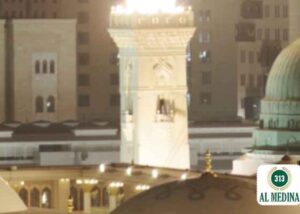Quran
Hadith
Islamic Text
A person who dies in an earthquake usually dies due to the collapse of a building or structure. Such a death is within the categories of Shaheed (martyr). Although this should be seen as a good death, we cannot specify particular individuals as Shaheed.
عَنْ أَبِي هُرَيْرَةَ رَضِيَ اللَّهُ عَنْهُ: أَنَّ رَسُولَ اللَّهِ صَلَّى اللهُ عَلَيْهِ وَسَلَّمَ قَالَ: الشُّهَدَاءُ خَمْسَةٌ: المَطْعُونُ، وَالمَبْطُونُ، وَالغَرِقُ، وَصَاحِبُ الهَدْمِ، وَالشَّهِيدُ فِي سَبِيلِ اللَّهِ
(Sayidina) Abu Hurairah (May Allah Most High be pleased with him) narrated that the Messenger of Allah ﷺ said, ‘The martyrs (Shuhadaa) are five (types). The one who dies in a plague, the one who dies due to a stomach related disease, the one who drowns, the one who dies as a result of a building (or structure) collapsing upon him and the martyr (Shaheed) in the path of Allah (Most High).’ (Sahih al-Bukhari, 2829).
The authentic Hadith above makes it clear that someone who dies as a result of a building or structure collapsing upon him is a Shaheed (martyr). Often people who die in earthquakes fall into this category of Shaheed. However, it may also extend to other people too. It is not restricted to earthquakes.
وصاحب الهدم: الذى يموت تحته. (إِكمَالُ المُعْلِمِ بفَوَائِدِ مُسْلِم)
And Sahib Hadam (person of collapse) refers to a person who dies under it (a collapsed structure or building). (Sharh Sahih Muslim, Imam Qadi Iyaad).
Although we should consider death due to a collapsing building (which is often the case in an earthquake) a good death, we cannot specify individuals as definitely Shaheed. The ultimate judgement is with Allah (Most High). It is entirely possible that someone seems to be a Shaheed but in reality is not. The Sahih Hadith below highlights this point.
عَنْ أَبِي هُرَيْرَةَ، فَقَالَ لَهُ نَاتِلُ أَهْلِ الشَّامِ: أَيُّهَا الشَّيْخُ، حَدِّثْنَا حَدِيثًا سَمِعْتَهُ مِنْ رَسُولِ اللهِ صَلَّى اللهُ عَلَيْهِ وَسَلَّمَ، قَالَ: نَعَمْ، سَمِعْتُ رَسُولَ اللهِ صَلَّى اللهُ عَلَيْهِ وَسَلَّمَ يَقُولُ: إِنَّ أَوَّلَ النَّاسِ يُقْضَى يَوْمَ الْقِيَامَةِ عَلَيْهِ رَجُلٌ اسْتُشْهِدَ، فَأُتِيَ بِهِ فَعَرَّفَهُ نِعَمَهُ فَعَرَفَهَا، قَالَ: فَمَا عَمِلْتَ فِيهَا؟ قَالَ: قَاتَلْتُ فِيكَ حَتَّى اسْتُشْهِدْتُ، قَالَ: كَذَبْتَ، وَلَكِنَّكَ قَاتَلْتَ لِأَنْ يُقَالَ: جَرِيءٌ، فَقَدْ قِيلَ، ثُمَّ أُمِرَ بِهِ فَسُحِبَ عَلَى وَجْهِهِ حَتَّى أُلْقِيَ فِي النَّارِ
The Messenger of Allah said: ‘The first of men whose case will be decided on the Day of Judgment will be a man who died as a martyr. He shall be brought forth and Allah (Most High) will remind him of his blessings and he will recognise them, Allah (Most High) will say: What did you do with them? He will say: I fought for You until I died as a martyr. Allah (Most High) will say: You have lied. You fought so that you might be called a brave man, and it has been said. Then the order will be passed against him and he will be dragged upon his face and cast into the Fire.’ (Sahih Muslim 1905 -152).
In light of the Hadith above, and other proofs from Quran and Hadith, we are guided to have great hopes for people who die in a situation that aligns with a category of Shaheed (Martyr). However, we cannot make definitive statements with regards to their rank with Allah (Most High).
And Allah Most High Knows Best.
-Answered by Shaykh Noorud-deen Rashid (09.02.2023)
See also:
Do Awliya know the unseen?
See also (video):






